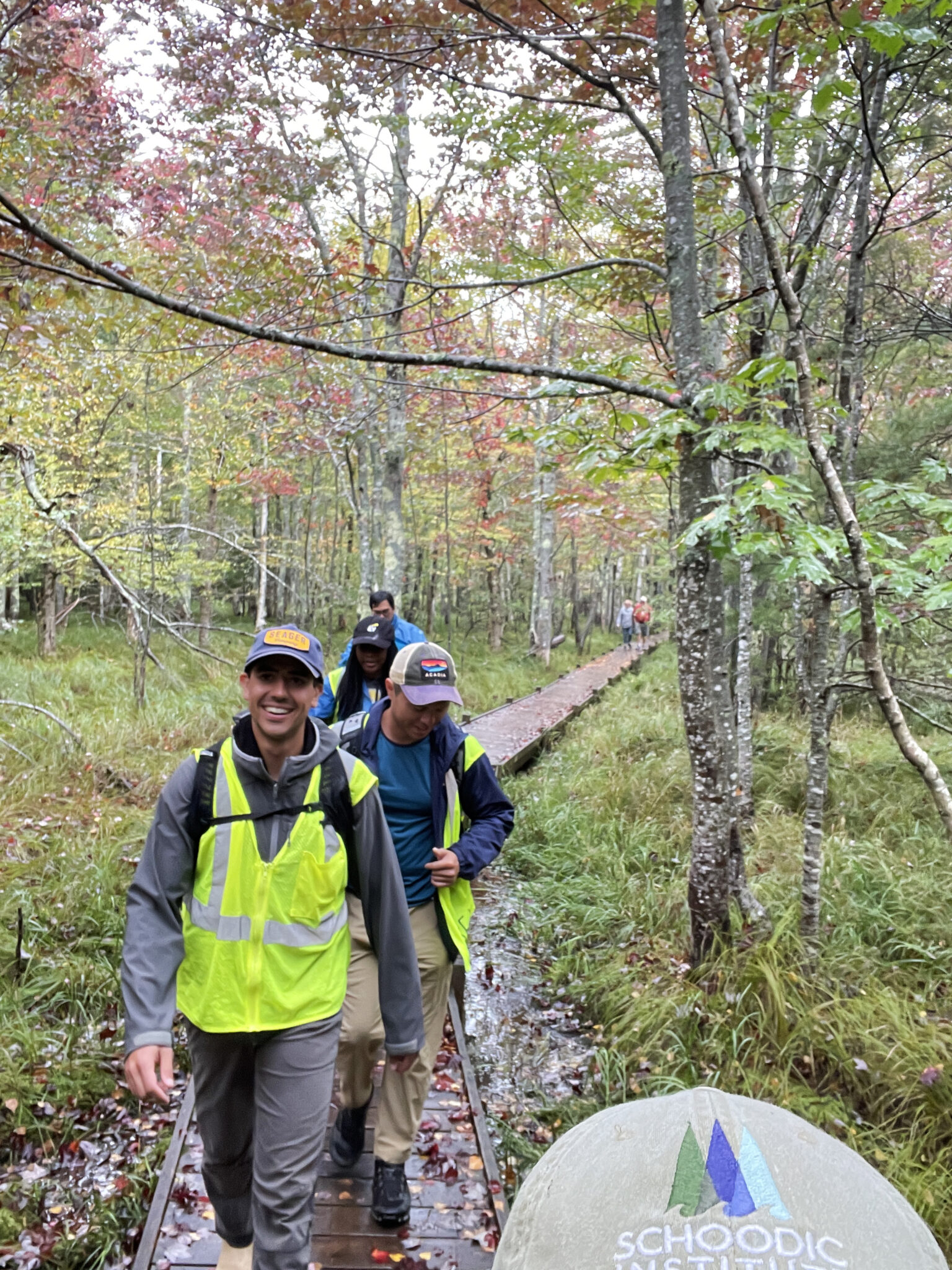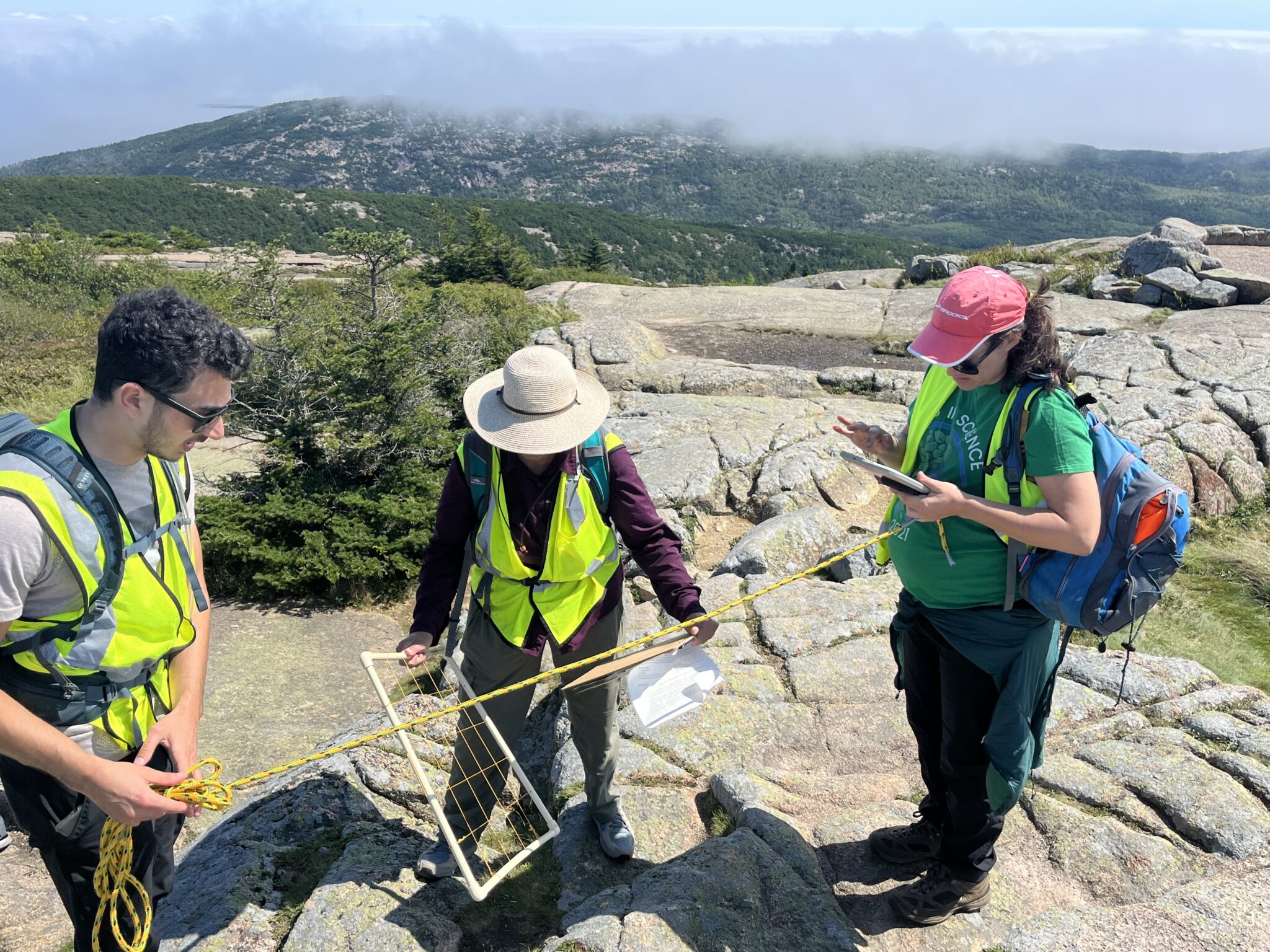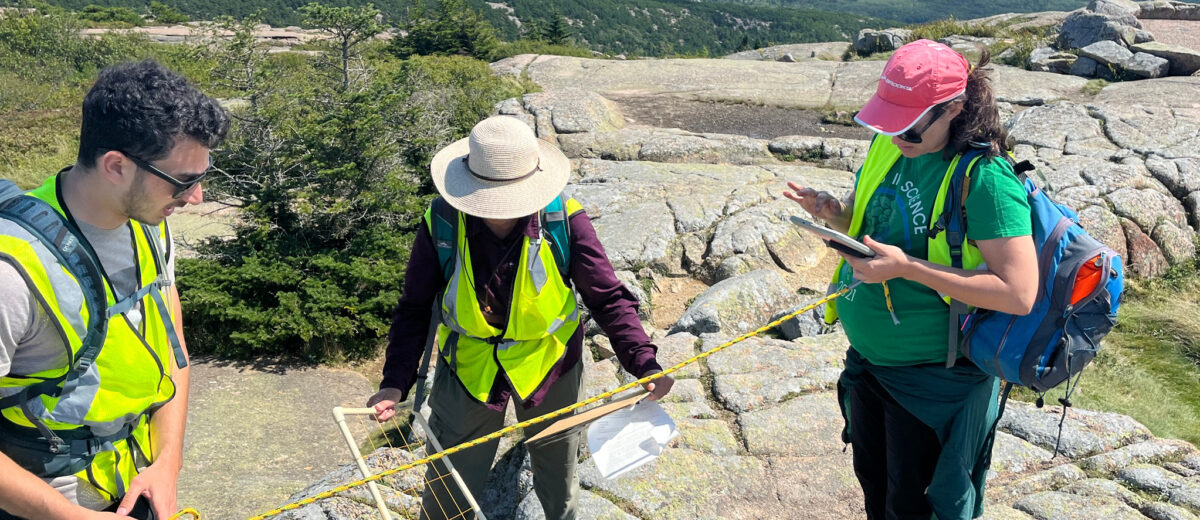by Abby Bar
During this field season, I have spent many hours working alongside citizen scientists for a variety of research projects. Some of these citizen scientists were local residents eager to help answer questions in their community, others were Earthwatch volunteers from around the world, looking for an opportunity to experience a new environment. They have contributed data that will help scientists estimate how much rockweed biomass is present along the coast of Maine (Project ASCO), identified refugia sites for species expected to be affected by climate change, and monitored biodiversity using iNaturalist.
In working with many citizen scientists during this field season, I have learned that these volunteers heavily value the work they are contributing to and want to make sure they are collecting accurate data.
If you are also a citizen scientist or looking to become one, I have compiled the list of things I have learned are most beneficial to ensure you are collecting accurate and useful data when helping with ecological field studies.

1. Ask questions.
If you are working alongside other researchers and citizen scientists, make sure to ask questions both related to the field work and beyond. Protocols can be confusing, especially when being introduced to them for the first time. Don’t hesitate to ask for clarification, to make sure you are collecting information consistently with the protocol. Additionally, ask questions about the meaning of the work and even other observations you make in the field. Asking questions as they come up can inspire new variables or research questions that maybe others haven’t yet thought of.
2. Bring a pencil and a write-in-rain notebook.
Oftentimes projects rely on technology such as tablets or cell phones. While these devices are extremely helpful, technical difficulties are always a possibility. Sometimes rain can make it difficult to type, or a device loses battery power. In these circumstances it is useful to carry a notebook, as a backup. Additionally, carrying a notebook and pencil is a great way to write down other observations you make in the field. Curiosity about the environment you’re working in can stretch beyond the scope of the study you help out with.
3. Double-check your work and slow down.
If you work too quickly, mistakes are more likely to be made. Don’t be afraid to take your time with data collection. If you are writing down numbers, repeat the values back to your fellow scientists to make sure you heard them correctly. If you are transferring notes from a datasheet or notebook to an online database, checking yourself for typos can go a long way.
4. Bring a friend.
There are two main reasons why as a citizen scientist you shouldn’t be going out on your own. First is safety. Making sure you are with another person is crucial to keeping yourself safe, whether you are trekking through the woods or across the rocky intertidal zone. Second, many times, having a second set of eyes and ears can help identify mistakes and spark discussions that enable greater accuracy.
5. Know your “why.”
The final thing I find is important in being a good citizen scientist is knowing not only why data are being collected for a project, but also why the project is important to you. Before starting work, talking to the scientists who have come up with the main question driving the research, or the other researchers involved, is crucial to understanding why your work is important. Knowing the end goal of a project is helpful in positively contributing to the data collection process. It is equally as important to consider why you care about a project specifically. In my work as a Field Ecology Technician at Schoodic Institute, I have found that it is necessary that I connect with the projects I work on and discover a reason why they are valuable to me, in order to best enjoy my time in the field.

If you are a citizen scientist, know that your contributions to the scientific community are essential to answering important ecological questions. We are grateful for your hard work and dedication to being as accurate as you can when in the field. Much of the work that needs to be done relies on many hands on deck, and community involvement is irreplaceable in making so many new discoveries.
